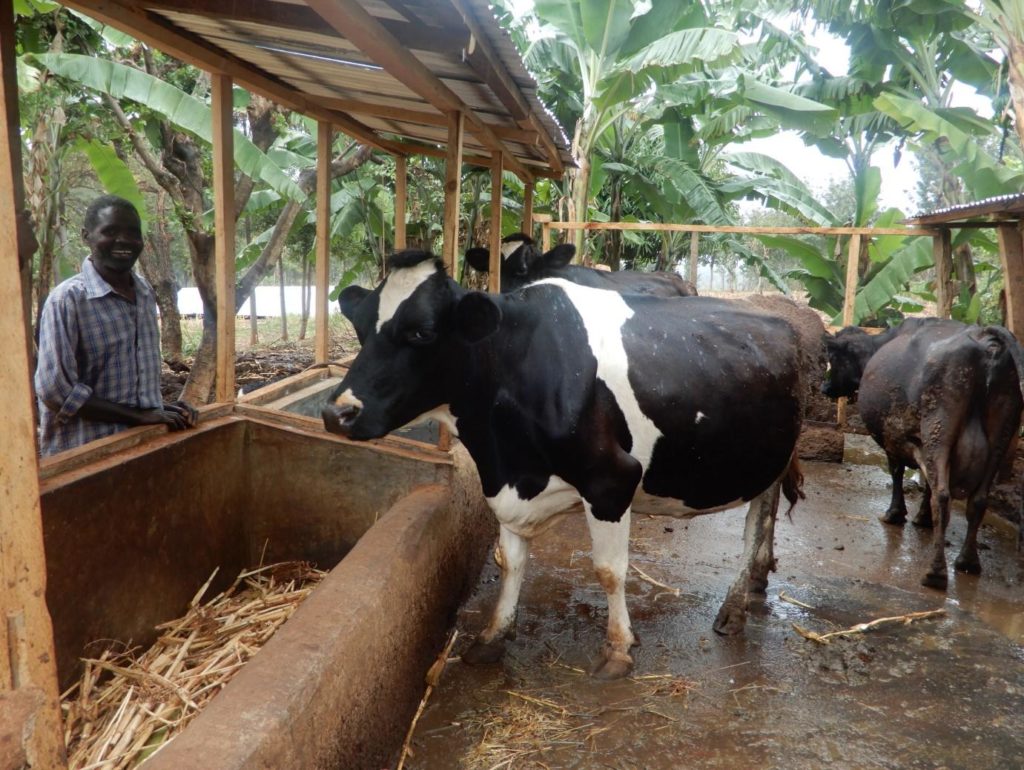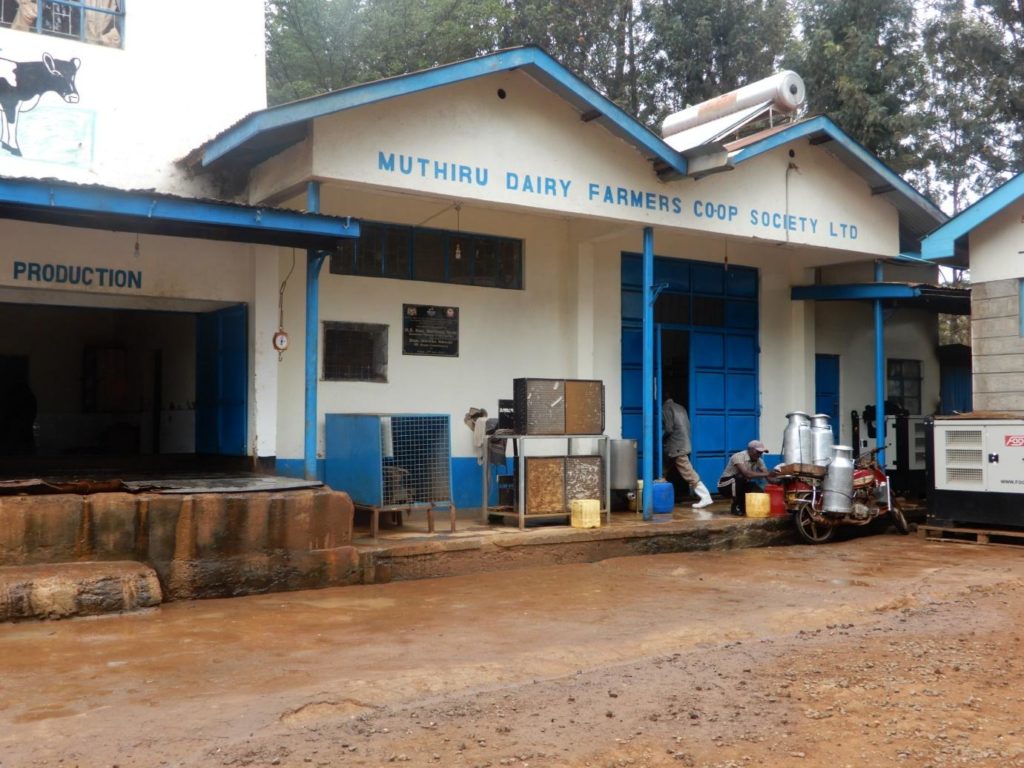
Muthiru Dairy Farmers Cooperative Society, located in Tharaka Nithi county, is one of five cooperatives that Solidaridad East & Central Africa supports through the Netherlands Enterprise Agency (RVO) funded Food for All Project in Kenya (F4APK). The cooperative was registered as a self-help group in 1996 and later incorporated in 2013 as a cooperative. With over 4,000 members, Muthiru is among the largest milk aggregation centres within the catchment area, collecting an average of 16,000 litres of milk each day.
In 2018, Solidaridad contributed towards the acquisition of a cooler with the capacity of 5,000 litres, a 19.2-kilowatt automatic switch generator for power back-up, a 300-litre pasteurizer, a 300-litre milk ATM, laboratory equipment for testing milk quality and a processing plant which produces and packages yoghurt at a capacity of 900 litres per day. The cooperative also benefited through the construction of a new building which hosts a mini-laboratory, store, cold room and a production unit. From our experience, innovation is the key to improving efficiency and profitability.
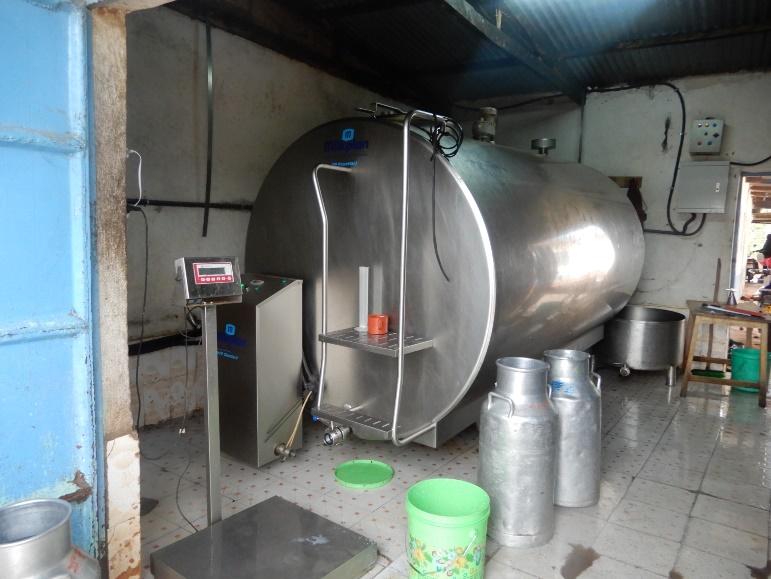
Dairy hub as a one-stop-shop
Muthiru Cooperative has now been transformed into a ‘dairy hub’, a one-stop-shop, for dairy farmers thus assuring them of a reliable market for their milk and embedded services that contribute towards increased productivity, food safety and reduced food loss. The role that the cooperative plays in bulking and chilling using innovative technologies minimises spoilage and ensures a higher return on investment for the smallholder farmer. While the farmers of Muthiru Cooperative also benefit from economies of scale and a regular, dependable market for their raw milk.
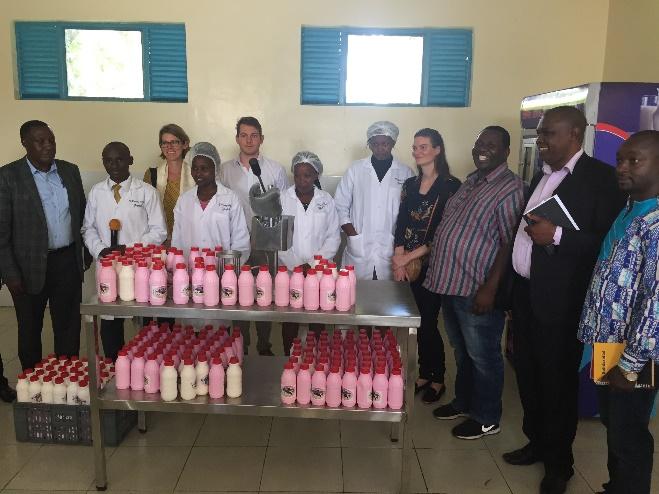
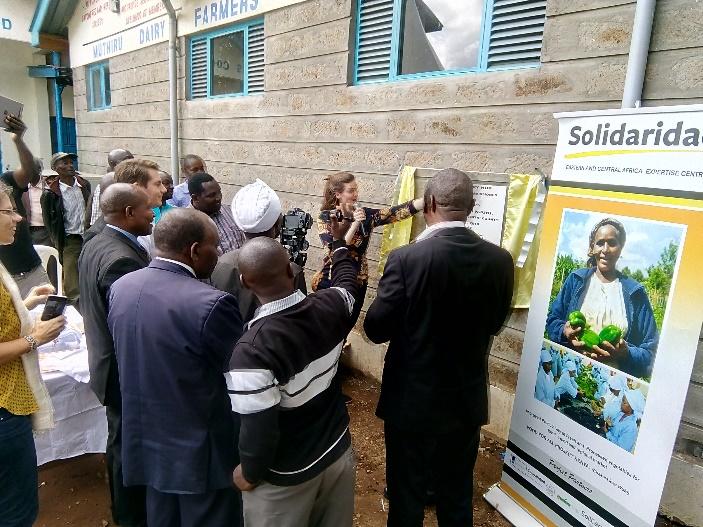
To reach a wide geographical area, the cooperative has established 25 milk collection and bulking centres and contracted milk transporters on motorbikes, popularly known as porters, to navigate through rural roads to reach more farmers. This is a win-win situation for both the farmer and cooperative as transportation costs are only deducted after the sale of the milk while the cooperative benefits from a steady reliable source of milk each day. In addition, availability of inputs at an affordable rate is crucial for the success of dairy farmers and Muthiru not only offers quality dairy meal to members, but also technical assistance, such as access to artificial insemination, extension advisory and other veterinary services.
The impact of good practices
Solidaridad, in conjunction with Heifer International, continues to play a major role in strengthening the cooperative’s capacity by training farmers on best livestock practices, group dynamics, social capital development, conducting fodder demonstrations, silage making, establishing dairy hubs and conducting business management, leadership and governance training at the cooperative level to strengthen leadership and business performance.
Mr. Kaburu Njeru is a promoter farmer in Mumbuni, Tharaka Nithi County, and a member of Muthiru Cooperative. He was among the first cohort of the Food for All Project in Kenya. Prior to this, Kaburu admits that he did not follow any specified practices in managing his farm hence output was low. He was also rearing dairy cows, but because they were receiving insufficient nutrients, milk production was unsatisfactory. However, since the project’s intervention, Kaburu has seen significant changes in milk production, which has risen from 5 to 12 litres per cow as a result of implementing good livestock practices. He also hosts integrated demonstration plots, one consists of high yielding nutritious fodder varieties, such as the drought-tolerant brachiaria grass, desmodium and lucerne.
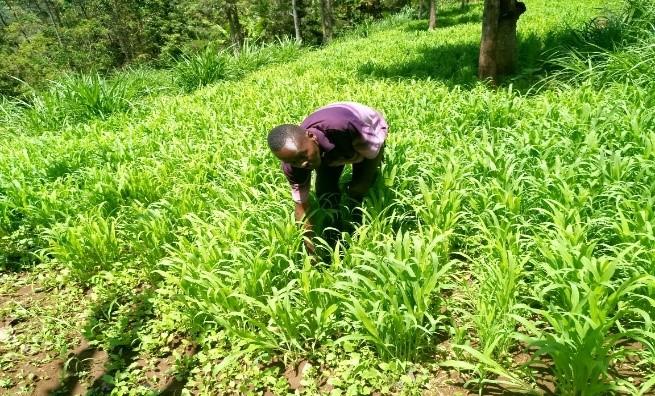
Farmers within the locality visit Kaburu’s farm to learn and collect fodder seeds and cuttings to plant in their farms to increase access to nutritious feed for their dairy cows. Another plot consists of an open drip vegetable crop demonstration plot for farmers’ practical training on climate change adaptation methodologies through the adoption of smart water for agriculture technologies.
